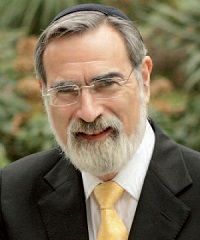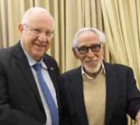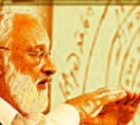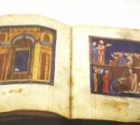
Rabbi Jonathan Sacks
Pesach is a night of questions, but there is one we do not ask, and it is truly significant.
Why was there a Pesach in the first place? Why the years of suffering and slavery? True, Israel was eventually redeemed and regained its freedom. It returned to the land its ancestors had been promised centuries before. Why, though, the necessity of exile? Why did God not arrange for our Forefathers Abraham or Isaac or Jacob simply to inherit the land of Canaan? If the Israelites had not gone down to Egypt in the days of Joseph, there would have been no suffering and no need for redemption.
Why Pesach? And why is it so important to relive this servitude yearly?
In his Haggada, Rabbi Jonathan Sacks (http://www.rabbisacks.org/unasked-question-taken-koren-sacks-haggada) argues that the Hebrew term for freedom, Herut, refers not just to physical freedom, but, more importantly, to mental, moral, and intellectual redemption as well. We are meant to be independent thinkers with independent values. But the truth is that freedom is not natural. On the contrary, the history of ages has demonstrated that the natural order in human societies, as it is in the animal kingdom, is that the strong prey on and dominate the weak. Nothing is rarer or harder to achieve than a society of equal dignity for all. It would seem that Israel had to lose its freedom before it could cherish it. Often, only what we lose, do we fully pay attention to.
Israel had to suffer the experience of slavery and degradation before it could learn, know, and feel intuitively that there is something morally wrong about oppression. Nor could it, or any other people, carry this message in perpetuity without reliving it every year, tasting the harsh tang of the bread of affliction and the bitterness of slavery. Thus, at the birth of the nation, a longing for freedom was created that was at the very core of its memory and identity.
Had Israel achieved immediate nationhood in the era of the Forefathers without the experience of exile and persecution, it would--like so many other nations in history--have taken freedom for granted; and when freedom is taken for granted, it has already begun to be lost. Israel became the people conceived in slavery so that it would never cease to long for liberty – and understand that liberty is anything but natural. It requires constant vigilance, and an unceasing moral struggle. Israel discovered freedom by losing it. May we never again lose it!
Why is the Shabbat before Pesach called Shabbat haGadol – the “Great Shabbat”? Because according to tradition, the Shabbat before the redemption was on the 10th of Nissan. It was on this day that Jews were bidden to publicly set aside a lamb, the Deity of the Egyptians, as a Paschal lamb--a Korban Pesach. This courageous act required us to assert our unique identity and break with the values of the leading culture of the time. It was on Shabbat haGadol that we proved we had the mettle to be different, to be redeemed physically and spiritually. It was on Shabbat haGadol that we stopped being passive, and became partners in the redemptive process.
We pray that this Nissan will bring us closer to the final redemption and to the celebration of Passover fully--with Matza, Maror, and Korban Pesach.
Rabbi Dr. Aryeh A. Frimer is the Ethel and David Resnick Professor Emeritus of Active Oxygen Chemistry at Bar Ilan University; Aryeh.Frimer@biu.ac.il.
 All ‘Dolled Up’ to help Needy Kids
All ‘Dolled Up’ to help Needy Kids Consumer Watch
Consumer Watch Milestones 193
Milestones 193 Kabbalah For All
Kabbalah For All Haggadot
Haggadot Passover 5767 ...The Holiday of Freedom
Passover 5767 ...The Holiday of Freedom Aryeh A. Frimer
Aryeh A. Frimer